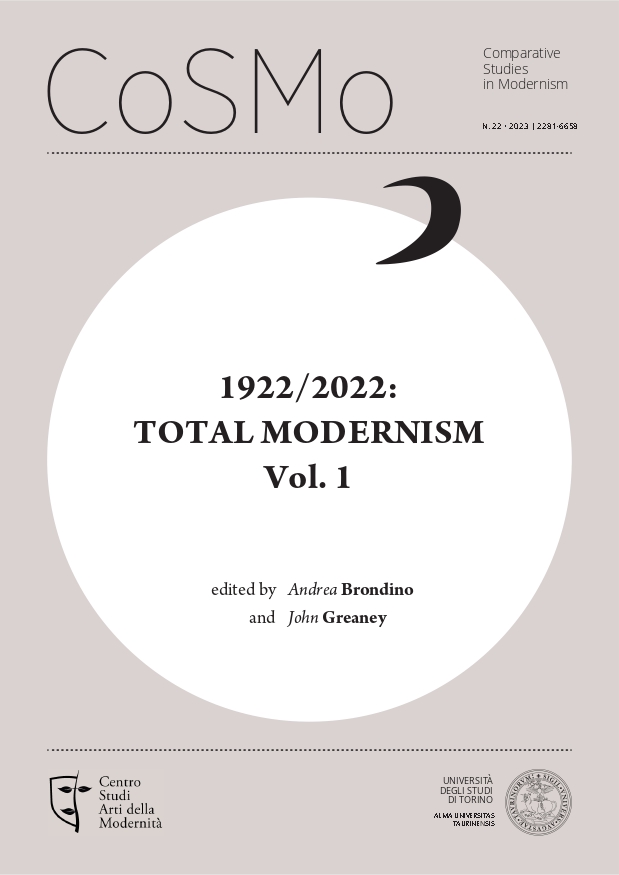Romantic Irony as a Source of Value Judgment in Modernism and New Criticism
DOI:
https://doi.org/10.13135/2281-6658/7822Parole chiave:
Romantic Irony, Modernism, New Criticism, Cleanth Brooks, Value JudgmentAbstract
This article discusses how the reception of Romantic irony in modernism and New Criticism bears significant implications for the emergence of irony as a key evaluative term in contemporary literary criticism. In particular, this article shows how irony usually alludes to a feature of the artist’s intelligence, as expressed by Ezra Pound, André Breton, Walter Benjamin, and Thomas Mann for instance. It also addresses how the concept of irony, as identified in North American New Criticism by Cleanth Brooks, among others, takes on an ambiguous and self-serving meaning, ultimately at the service of the critics’ value claims.
Downloads
##submission.downloads##
Pubblicato
Fascicolo
Sezione
Licenza
Gli autori mantengono i diritti sulla loro opera e cedono alla rivista il diritto di prima pubblicazione dell'opera, contemporaneamente licenziata sotto una Licenza Creative Commons - Attribuzione che permette ad altri di condividere l'opera indicando la paternità intellettuale e la prima pubblicazione su questa rivista.







